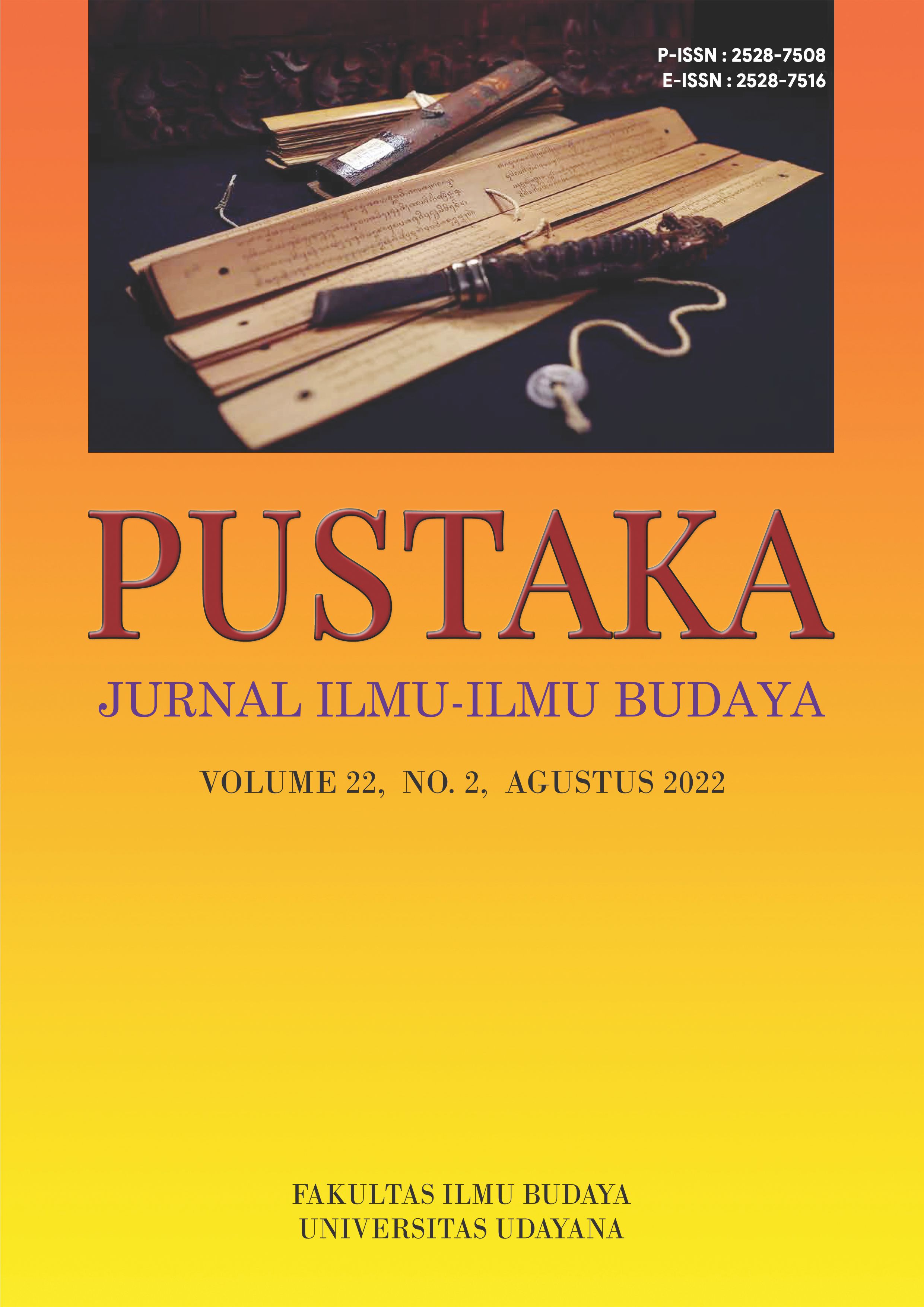Mengurai Ingatan Kolektif Suara Perempuan Maluku Dua Generasi di Belanda dalam Mentjari Djalan Sendiri
Abstract
Remembering is a social action that cannot be separated from the context of the identity of both individuals and groups with the same background. Interpretation and reinterpretation of self-image, individual and group identities emerge from fragments of memories regarding events that occurred in the past. This study aims to show the representation of self-identity as a Moluccan in the collective memory of the first and second generation Moluccan women in the Netherlands. This research uses descriptive analytical method and literature study using Halbwachs (1980) approach, regarding the memory of social actions which are not only personal in nature but adhere to its collective and dynamic nature as well as a basic form of identity. The results of this study show that there are three elements of collective memory presented by the first and second generations of Moluccan women, namely interpreting the first generation as a rigid and hard generation, the Moluccan camps in the Netherlands are considered as the 'space' of Maluku as well as Maluku's inferiority in front of the Netherlands, Moluccan women are fighters and mediators in the family. This study also shows how the two generations interpret their identity: the first generation feels like Moluccans, while the second generation is in chaos of dual identity: Moluccan’s and Netherlands
Downloads
References
Bartels. (1986). Can the train ever be stopped again? Developments in the Moluccan community in the Netherlands before and after the Hijackings. Southeast Asia Program Publications, 23-45.
Giesen, I. v. (2015). Molukkers in Nederland. De representative van hun geschiedenis in het werk van tweede generatie Moluks-Nederlandse auteurs. In Master-thesis Moderne Letterkunde. Faculty of Humanities. Leiden University.
Halbwachs, M. (2011). The collective memory. In J. Olick, The collective memory reader (pp. 139-149). Oxford University Press.
Huwae, A. (2011). Masohi, Masadingu dan Hamaren: sistem kerjasama tradisional di daerah Maluku. Kapata Arkeologi Vol. 7 No 12, 101-109.
Leirissa. (1993). Tantangan dan rongrongan terhadap keutuhan negara dan kesatuan Republik Indonesia: kasus Republik Maluku Selatan. Jakarta: Departemen Pendidikan dan Kebudayaan, Direktorat Sejarah dan Nilai Tradisional, Proyek Inventarisasi dan Dokumen Sejarah Nasional.
Pessireron, S. (2003). Molukkers in Nederland. 'Wij kwamen hier op dienstbevel...' Kampverhalen uit Lage Mierde. Netherlands: Uitgeverij Waanders b.v. Zwolle.
Praamstra, O. (2018). Sylvia Pessireron. Een Molukse schrijfster uit Zeeland. Indisch Letteren, 33ste jaargang, nummer 2., 295-309.
Rahantoknam, O. (1995). Moluks literair leven in Nederland. Indische Letteren, Jaargang 10.
Saryono. (2009). Pengantar apresiasi sastra. Universitas Negeri Malang.
Steijlen, F. (2008). Muziek en literatuur als schanier voor integratie. Indische Letteren, Jaargang 23.
Sumardjo, Y., & Saini, K. M. (1998). Apresiasi kesusastraan. Jakarta: PT Gramedia Pustaka Utama.










